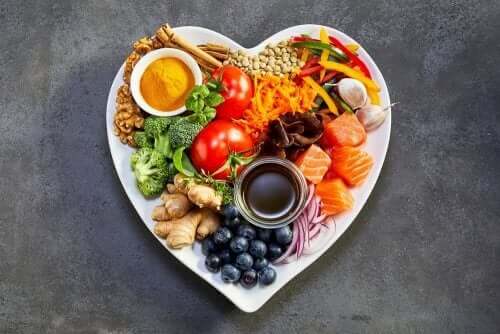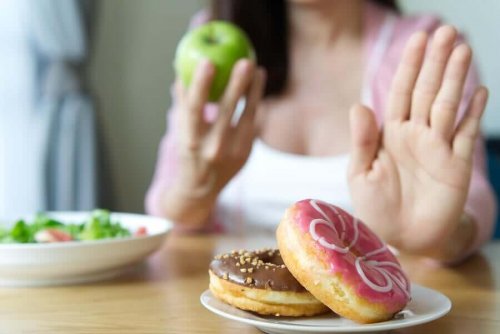Interview with Carlos Ríos: Do You Eat Real Food?

The real food movement is much more than a fad. Its creator, nutritionist Carlos Rios, is teaching and inspiring thousands of people to follow a new, healthier lifestyle. For him, when it comes to food, the simpler, the better.
We know that the food industry tends to be swayed by fads and passing gurus that promise miracles. However, Carlos Rios’ achievements go far beyond. His movement, which originated a few years ago and became viral through social networks, is accomplishing two things.
The first is providing consumers tools and knowledge so they can understand what they eat each day. The second is opening consumers’ eyes so they can understand the need to consume healthily, ‘real’ food.
We talked about it with Carlos Ríos in the following interview.
“The industry likes to talk about nutrients and calories so that you believe that what you’re eating is healthy. It’s such a confusing language that, in the end, you end up consuming processed foods.”
Interview with Carlos Ríos
Carlos Ríos is a nutritionist who completed his studies at Pablo de Olavide University in Sevilla, Spain and is the creator of the real food movement. He has thousands of social media followers, and his goal to raise awareness in the population is yielding amazing results.
This article may interest you: What is an Ovovegetarian Diet?
His book Eat Real Food: A Guide to Transforming Your Diet and Your Health is quite the hit and stands out as an indispensable handbook endorsed by scientific literature. It makes us understand something that Carlos Ríos repeats often: “We don’t eat real food but instead products that have put before our eyes”.
In our interview with him, we delved into what realfooding is. The interview made us understand that knowledge is power. Knowing what we eat empowers us and helps us make better choices to invest in our health.

Where did the real food initiative come from?
It was something that I started with my patients. Once I realized the good results that I was getting from focusing on food and teaching about the dangers of processed foods, I decided to share it with the general population, since I do fairly well on social media and saw the possibility of reaching a large audience.
If real food has been within our reach for a long time, why do most of the population not follow a good diet?
Because the food industry has taken advantage of the hectic life most people lead, selling products that are easy to consume and carry with us (processed foods) and, thus, gradually reducing the intake of real food.
What’s the worst thing we can eat? Are there any foods that we should eliminate from our diet?
Generally, all processed foods are unhealthy, and the sum of each of them is what makes them dangerous. One of the most-consumed ones is soft drinks, which people should avoid.
Read on: The Truth about Soft Drinks
So what should we keep an eye out for when it comes to buying food?
The ingredients. Although people have always focused on calories or fats, the ingredients are the most important thing. The food industry knows what we look at, which is why they try to fool us with “light” or low in calories products because they know that they’re attractive.

Could you tell us what we can eat or drink between meals?
Natural nuts or roasted nuts without added salt, fruit, natural yogurt, pickles, olives, and edamame are good options. It’s best to drink water. However, you can make a “real food soda” with water or sparkling water, lemon, and ice.
The media shows people many processed or sugary foods. Let’s talk about children. How can we help them join the initiative?
We can’t make children understand the concept of “this food is healthier than” or “this is a processed food”. Children use their imagination a lot, as well as what they pick up through their senses, so we must introduce real food in a creative, tasty, and even “playful” way. For them, it isn’t the same to simply eat a piece of fruit than fruit that’s “drawn” on the plate.
Finally, how can we start the real food path?
Through our one-month real food challenge. There’s a lot of information on our Instagram, to begin with. With this challenge, you’ll be benefited in so many ways in just one month that you won’t want to go back to your previous habits.
All cited sources were thoroughly reviewed by our team to ensure their quality, reliability, currency, and validity. The bibliography of this article was considered reliable and of academic or scientific accuracy.
- Srour B., Fezeu LK., Kesse Guyot E., Alles B., et al., Ultra processed food intake and risk of cardiovascular disease: prospective cohort study. BMJ, 2019.
- Horst KW., Serlie MJ., Fructose consumption, lipogenesis, and non alcoholic fatty liver disease. Nutrients, 2017.
- Aune D., Giovacnnucci E., Boffetta P., Fadness LT., et al., Fruit and vegetable intake and the risk of cardiovascular disease, total cancer and all cause mortality a systematic review and dose response meta analysis of prospective studies. Int J Epidemiol, 2017. 46 (3): 1029-1056.
This text is provided for informational purposes only and does not replace consultation with a professional. If in doubt, consult your specialist.









